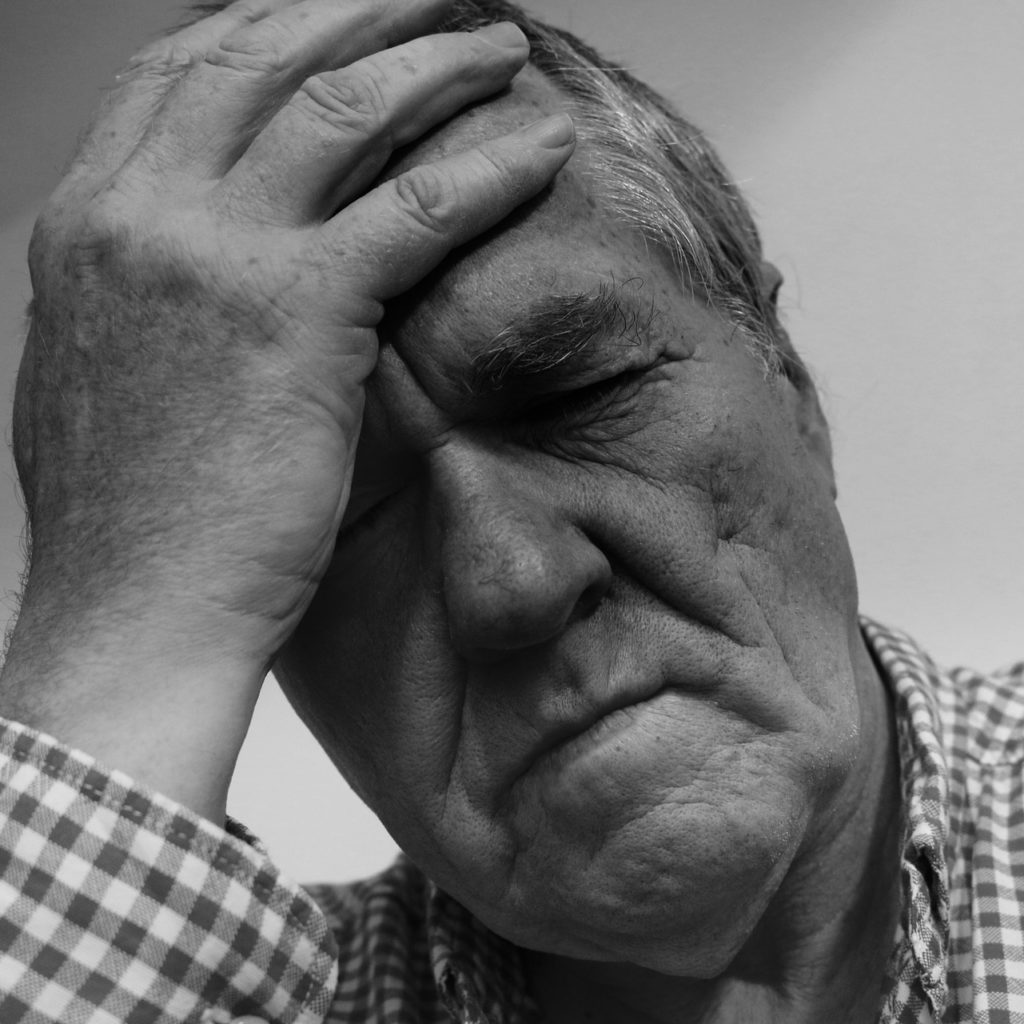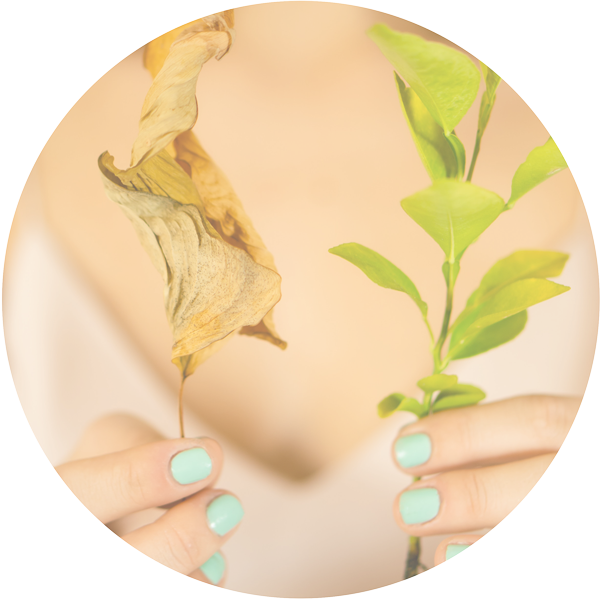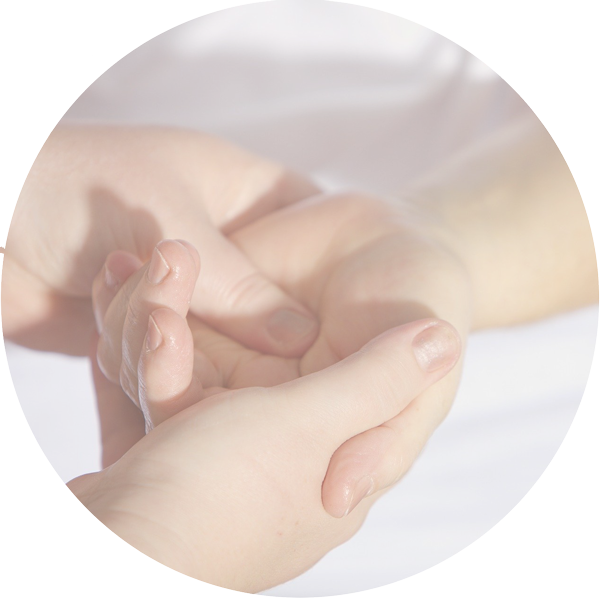An evidence-based approach to prevent and reverse chronic disease.
Read MoreThe why behind our symptoms
Why our symptoms keep returning
It can be distressing and concerning when we do not know why our symptoms started, or why they fluctuate. We can end up feeling stuck and powerless – and that our only option is to live with symptoms and try to manage them.
You may have tried to get to the bottom of symptoms, to relieve them or get help – either through your GP or via complementary therapies. You may wonder whether your symptoms are related to an old injury, are related how you sleep, are a result of lifestyle choices – or possibly are inherited. You may be reading this because you have a sense that stress ignited or seems to increase your symptoms in some way.

Your body's wisdom

When we’re unsure how our symptoms began, we are left wondering and trying to figure it out. We can end up accepting symptoms as part of our life or trying to make changes to reduce and manage them.
Another way is possible.
There is a deeper root cause to most of our symptoms. Once we discover what this is and address it, our body will naturally find its way back to balance. We didn’t always have these symptoms and chronic illness isn’t an inevitable part of getting older. Somewhere along the way our body made some adaptations to our life experiences and over time these adaptations created a chronic imbalance. This imbalance is reversible. If a plant is poorly, we water the roots rather than tend to the leaves. Our bodies can reverse most chronic illnesses if we create the right conditions.
Our bodies are miraculous. We are complex integrated wholes, our bodies are not just a mechanical vessel that breaks down. Our thoughts, emotions, experiences, physiology and lifestyle choices are all woven together to create our health.
A holistic view of our symptoms
It is very common that we try to pinpoint the ‘one thing’ that triggered our symptoms. However there are a variety of factors that can impact, trigger our symptoms:
- Changes in our bodies and toxins in our environment
- Stress
- Emotions
- Beliefs
- Lack of love and support
- Lifestyle habits
…and these all connect together. By looking at each of these, we can gain a deeper understanding of why your symptoms started and what keeps them recurring.

The 6 root causes of our symptoms
![]()
1. Our body
Our bodies are always listening to our thoughts, experiences and feelings. Every tissue in our body has a specific function. For example the top layer of our skin is very thin, it has no protective purpose but is there to help us touch, feel and connect with others and the world around us. If we experience a loss of touch or connection (losing a loved one, a pet, a child leaving home etc) our skin adapts to help us cope. Our skin thins out to become numb – to stop us feeling it. Our skin then becomes dry and flaky, one stage of eczema. If stressors are not fully resolved or let go of, these adaptations become chronic over time and our symptoms get worse.
2. Stress
Stress is what happens when our bodies react to an external challenge or threat. Stressors can everything for us: our feelings, thinking, our energy, our behaviours – and our physical bodies and sensations. Stressful events can either be a highly dramatic one-off event or a continual drip-drip effect. Stress is very personal and very much in the eye of the beholder, what one persons finds frightening, another might find enraging and another might find OK. A tailored approach to the impact of stress on symptoms is essential. Stressors that have lasting effects on our body are usually very emotional, unexpected and evoke a sense of powerlessness, such as…
- Being on the receiving end of other people’s anger
- Sudden frightening situations
- Being humiliated or degraded
- Life changes that effect our sense of who we are and our self worth
- A boss, co-worker or friend who dominates or shames us
- Having to continually keep the peace and sideline your voice, needs or feelings
- Difficulty coming to terms with painful changes or loss
- Unmet needs during childhood
- Hypervigilance, feeling afraid or on eggshells
- Feeling stuck and unable to move forward
- Abusive relationships, violence and force
- Too much pressure, over responsibility and constantly having to hold it all together
- Feeling paralysed by something or unable to protect ourselves
- …and many more that our body hears, feels, sees and responds to.
What stressors in your life feel unresolved?
Once our body reacts to an initial stressful event, even when this seems to have passed and we can mentally put is aside, the emotions/stress can lie dormant in our organs and tissues. When the stress is dormant, there is an underlying susceptibility to being re-triggered. New stressors that feel like the original event can spiral us back into how we felt the first time. Symptoms therefore fluctuate as we go in and out of the phases of being active or dormant.
2. Emotions
Emotions are continually alive in us, although we may not always notice them. Emotions, such as anger, shame, fear or sadness are often a call for our attention. We can put them aside, but they don’t fully go away and this can impact our health. We may not have learned how to express challenging emotions in a healthy way, this is particularly true for anger – and this can teach us that these emotions are unsafe. When we repress emotions, our subconscious holds onto them and tucks them away in our body, saving them for when we are ready one day.
Where do you hold tension in your body? This could be a clue to where some old emotions are residing. Tune into this area and really bring your awareness there, what qualities does that tension have? How does it really feel? If it had a colour what could that be? What emotion might be stored there – what’s the first thing that comes to mind – trust the answers from your body. Our language contains loads of phrases that highlight how we can hold emotions in different areas of our body – ever had a knot in your tummy or a sense of the world on your shoulders? When we go towards these tensions, symptoms and emotions we can begin to loosen them and let go.
![]()
2. Beliefs
Limiting beliefs are repetitive thoughts that we have about about ourselves, others or the world. They are learned and often run subtly in the background, under our radar. Limiting beliefs and thoughts can have a big effect on our feelings, choices and behaviours. We can hold strong beliefs about our value, what’s acceptable, why things happened, what others think about us, our health and potential recovery and more…
Beliefs aren’t fixed, although they can feel very strong. We can shift limiting thoughts to more empowering ones to help us move forward more freely. When we experience challenges, we can adopt new ways of thinking about ourselves and the world. We often do this to try to is create safety and avoid a repeat performance.
Beliefs can reactivate physical symptoms and keep us locked into chronic cycles. If you have a repetitive thought that you want to loosen, ask yourself: how true it this from 0 – 100%? Notice if there is any doubt or wriggle space. If it’s not absolutely true – 100%, ask yourself: what would I like to believe instead?
![]()
2. Love and support
Our social surroundings have a significant impact on our health. If our relationships are not supportive, honest or nurturing this can be stressful, create painful emotions, affect the way we think about ourselves and re-trigger symptoms. Our social environment includes our friends, families, place of work, social groups, communities, culture and society.
If we have toxic relationships or communications, we are susceptible to experiences that will ignite and/or re-trigger chronic health issues on a regular basis. Noticing and taking steps to change these real-life stressors in our relationships is vital for an upward spiral in our health.
Ask yourself: what dynamics in my relationships might be effecting my symptoms or body? Awareness is a fantastic and big step forward.
![]()
2. Lifestyle
There are numerous studies that show how a healthy lifestyle can support our bodies and health. A healthy diet, moving more and sleeping well give us vitality, which helps our body to naturally heal and regenerate.
- Food is medicine
- It’s never too late to start physical exercise. Start small and gently using micro habits
- Sleep supports our memory, mood, processing and repair
To address the root causes of your symptoms, it’s important to also gently develop new healthy lifestyle habits. Addressing the root cause of physical symptoms asks your body to shift gear, let go and heal chronic physical patterns. Your body need energy and vitality to support it in shifting out of chronic cyles..
Ask yourself: what one small lifestyle micro habit could I start today? Make it a 1% change that you like the sound of. Be kind to yourself. 🙂 Commit to do it until it feels easy before making any changes. Remember, habit change can be hard – congratulate yourself every time that you achieve it!
How do stress, emotions, thoughts, lifestyle or relationships affect your symptoms?
Start exploring your 'why'
Find and address the root causes that keep symptoms recurring. Book a free no obligation chat to find out how this approach could help you release the pressure. All side effects are positive.
Begin your upward spiral to health and well-being
The stress response – our bodies natural rhythms
Understand your body's natural rhythm and the signs of imbalance. When we are living in survival mode, or chronic stress,...
Read MoreMindful touch – listening to the body to support self-healing
Presence and intention through touch create a powerful potential for healing.
Read More4-7-8 breathing – natural tranquilliser for insomnia
A quick, simple and effective tool to support difficulty falling or staying asleep.
Read More



